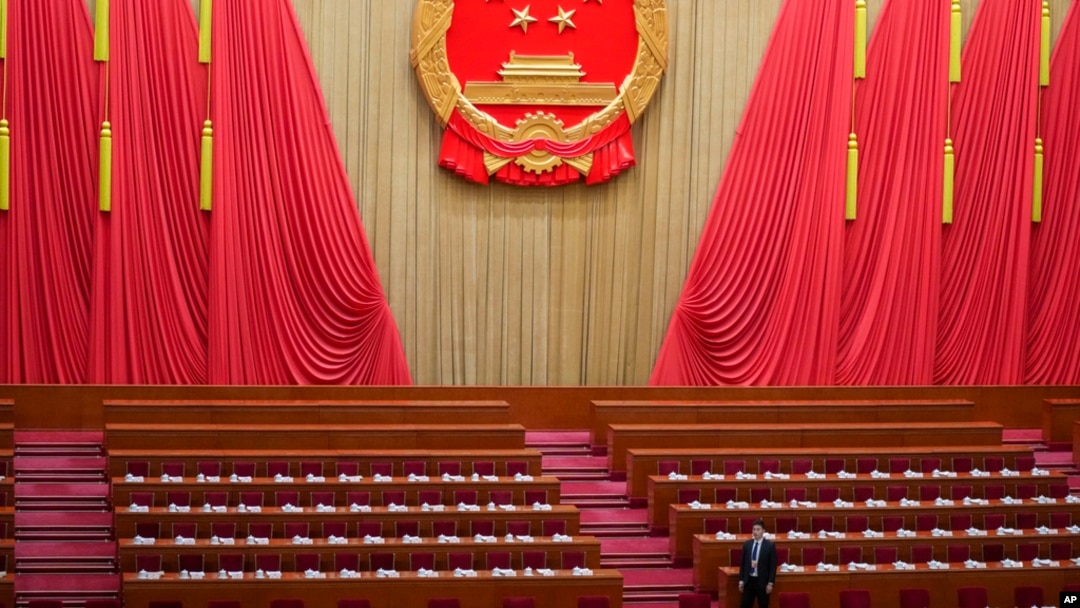China will adopt wide-ranging security laws in 2024 to "resolutely safeguard" its sovereignty, a top lawmaker vowed at a key legislative meeting Friday, as President Xi Jinping's government seeks to eliminate perceived threats to its rule.
The "Two Sessions" — parallel meetings of China's rubber-stamp parliament and political consultative body — offer a rare glimpse into the strategy of the Communist Party-led government for the year ahead.
Top legislator Zhao Leji promised Friday that lawmakers would "resolutely safeguard China's sovereignty, security, and development interests" as he laid out the agenda for the National People's Congress (NPC) for the coming year.
"To modernize China's system and capacity for national security," he said, Beijing will enact "an emergency management law, an energy law, an atomic energy law, and a hazardous chemicals safety law."
It will also revise "the National Defense Education Law and the Cybersecurity Law," Zhao said in his report.
He did not offer more details about what the new laws would involve, nor when precisely they would be adopted.
The NPC is also set to introduce and amend laws in areas ranging from financial stability to preschool education and disease control.
"Military education and cybersecurity are clear priorities" for China's legislators, Jean-Pierre Cabestan, professor and Chinese politics expert at Hong Kong University, told AFP.
"They want to strengthen the legal framework in these areas, which is part of Xi's own priorities," he said, adding it was "no surprise" that national security was highlighted in Zhao's report.
Broad security push
China last year approved a revised anti-espionage law that dramatically expanded its definition of spying, giving Beijing more power than ever to punish what it deems threats to national security.
A state secrets law adopted last month added more categories of sensitive information, including "work secrets" — information not classified as state secrets, but which could "impede the normal duties of (state) organs or work units" if leaked.
Such leaks must be met with "necessary protective measures," the amended law says.
"Putting a heavy focus on national security legislation has been a key feature of the NPC's legislative work during the Xi era," Changhao Wei, founder of the NPC Observer website, told AFP.
He pointed to over a dozen pieces of national security legislation rolled out by Beijing since 2014, including counterterrorism, national intelligence, and data security laws.
"There has been a general effort to build the necessary legal infrastructure for safeguarding China's ‘national security,’" Wei said.
Under Xi, he said, "national security is a priority area for legislation and will likely remain so for the foreseeable future."


